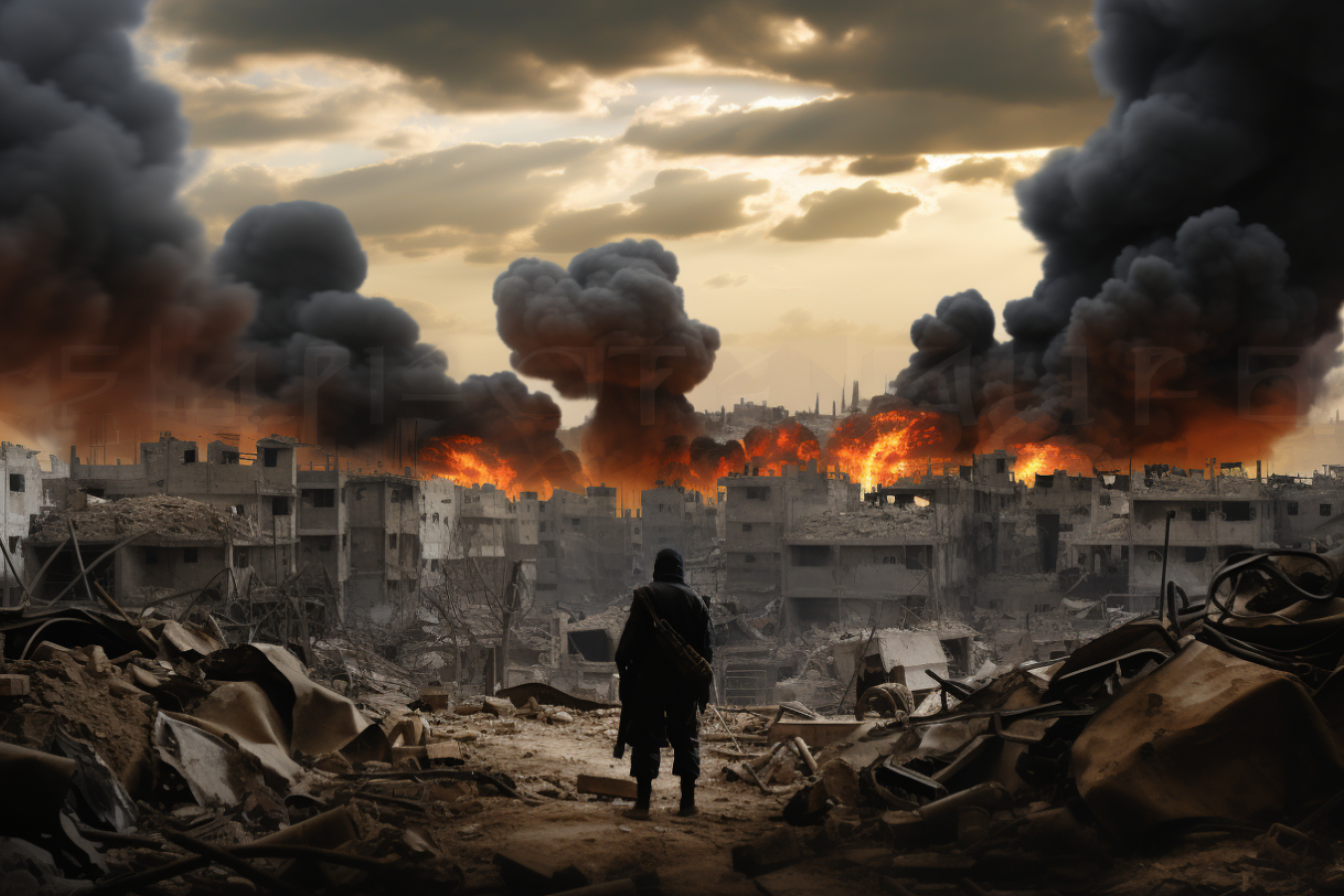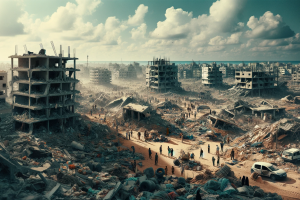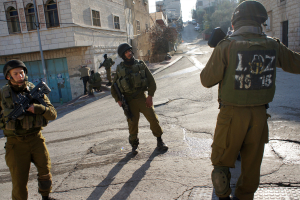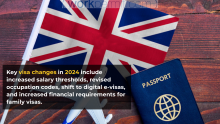Support migrant centric journalism today and donate

Sanwar Ali:
Please note that this news report and the image generated have been generated by AI (artificial intelligence) systems. The report is largely unedited by me. The report is based largely on information from US news sites. The AI systems used are provided by large well known US based companies. Even the prompt used to instruct the AI system to write the report was written by an AI system. It was asked to write a "report on the potential refugee and humanitarian crisis due to Israel-Hamas war". I would like to extend my utmost sympathies to all the innocent civilians who have suffered due to the recent conflict, be they Israelis, Palestinians, etc.
The recent escalation between Israel and Hamas has resulted in an intense conflict, inflicting severe hardships on the civilian population. This war, aside from the immediate casualties and destruction, could potentially instigate a massive refugee and humanitarian crisis. This article delves into the prospective implications of the conflict and provides a comprehensive analysis of the potential refugee and humanitarian crisis that could unfold in the wake of the Israel-Hamas war.
The Genesis of the Conflict
The root of the conflict traces back to the complex political and territorial dispute between Israelis and Palestinians. The recent flare-up between Israel and Hamas has significantly intensified the situation. The escalation has resulted in a high casualty toll and extensive infrastructure damage, mainly in Gaza.
Current Humanitarian Situation in Gaza
The residents of Gaza are dealing with an exacerbating humanitarian situation. The region's biggest challenges are the dire living conditions due to the blockade and the recent escalation in violence. Essential goods and services are increasingly inaccessible, and the blockade has further compounded these issues.
Impact of the Blockade
The blockade imposed on Gaza has critically hampered residents' access to essential goods and services. Basic necessities like food, water, and medical supplies are scarce. Even when available, their exorbitant prices make them inaccessible to many. This blockade has victimized the inhabitants of Gaza, pushing them into a vortex of poverty and deprivation.
Health and Sanitation Crisis
The war has led to a severe health and sanitation crisis. Medical facilities are overwhelmed with the injured, and the lack of medical supplies is worsening the situation. The destruction of water and sanitation infrastructure has raised serious health concerns, with the potential of disease outbreaks looming large.
Educational Challenges
The ongoing conflict has heavily impacted the education sector. Schools and educational institutions have been damaged or are being used as shelters, disrupting the education of thousands of children. This could have long-term consequences on the future of these children and the development of the region.
Potential Displacement Scenario
The escalating violence could potentially displace a significant number of people. If the conflict continues, the number of internally displaced persons in Gaza is predicted to rise exponentially. The options for seeking refuge are limited due to the blockade and the ongoing pandemic, further complicating the displacement scenario.
Impact on the Region
A potential refugee crisis could have a profound impact on the region. The neighboring countries, already dealing with economic and political challenges, could face additional strains. Accepting refugees would require these countries to provide essential services like food, shelter, and medical care, further straining their resources.
International Response and Obligations
The international community has a crucial role to play in addressing this crisis. International law obligates it to protect refugees and civilians during armed conflicts. Humanitarian aid must be provided to those affected, and efforts need to be made to resolve the conflict and prevent further escalation.
Role of International Aid Organizations
International aid organizations like the United Nations and the Red Cross play a vital role in providing relief. These organizations are working tirelessly to deliver essential goods and services to the affected population. However, the blockade and the ongoing conflict have severely hampered their operations.
Role of Foreign Governments
Foreign governments also have a significant role in resolving the crisis. They can exert diplomatic pressure on the warring parties to cease hostilities and negotiate a resolution. They can also provide financial aid to support the humanitarian relief efforts.
Conclusion
The recent escalation between Israel and Hamas has the potential to trigger a massive refugee and humanitarian crisis. The blockade and the destruction caused by the war have already created a grim humanitarian situation in Gaza. A potential displacement crisis could exacerbate the situation and strain the resources of the region and the international community. It's imperative for the international community to act swiftly and decisively to prevent a humanitarian catastrophe.
The Israel-Hamas conflict is not only about geopolitics but also about the lives of innocent civilians caught in the crossfire. A comprehensive and lasting resolution is needed to prevent future humanitarian crises. The international community must live up to its obligations to protect civilians and refugees and work towards a peaceful resolution of the conflict.





















